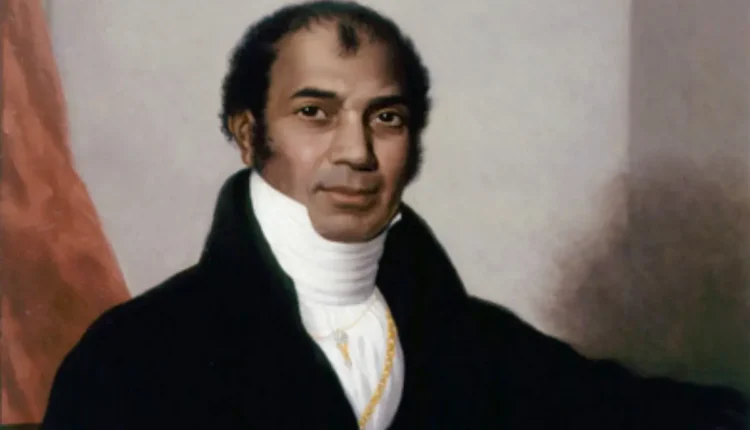In the rich tapestry of history, few individuals stand out as beacons of cultural fusion and innovation. Dean Mahomed (1759-1851), a British Indian traveler, soldier, surgeon, and entrepreneur, is one such luminary. His remarkable journey from the bustling streets of Patna to the sophisticated salons of London and the therapeutic bathhouses of Brighton is a testament to his indomitable spirit and pioneering vision.
Early Life in Patna
Born in May 1759 in Patna, a significant city in the Bengal Subah, Mahomed hailed from a family with a rich heritage. While some sources suggest he belonged to the Nai caste of barbers, Mahomed himself claimed a lineage connected to Arab and Afshar Turk origins, with ancestors serving under the Mughal Emperors and the Nawabs of Murshidabad.
His father, a soldier in the Bengal Army, tragically died in battle when Mahomed was just 11 years old. This pivotal event led Mahomed to be taken under the wing of Captain Godfrey Evan Baker, an Anglo-Irish Protestant officer, marking the beginning of his lifelong association with the British military.
Dean Mahomed: Military Service and Migration to Europe
Dean Mahomed’s early years were marked by his service in the East India Company’s army, where he trained as a surgeon and participated in campaigns against the Marathas.
Dean Mahomed’s tenure in the military provided him with invaluable experiences and connections, particularly his bond with Captain Baker. In 1782, both Mahomed and Baker resigned from the army, and Mahomed chose to follow Baker to Ireland, a decision that would profoundly shape his future.
Love and New Beginnings in Ireland
In 1784, Dean Mahomed settled in Cork, Ireland, where he dedicated himself to mastering the English language. It was here that he fell in love with Jane Daly, a young woman from a respectable Protestant family.
Despite the legal and societal obstacles to their union, the couple eloped and married, cementing Mahomed’s ties to his new homeland. Their marriage was a bold defiance of the era’s conventions, underscoring Mahomed’s courage and commitment to his personal convictions.
Literary and Entrepreneurial Ventures
Dean Mahomed’s intellectual curiosity and entrepreneurial spirit soon found new outlets. In 1794, he published The Travels of Dean Mahomet, the first book in English by an Indian author.
This work, written in epistolary form, provided European readers with vivid insights into Indian culture, trade, and military life. Mahomed’s unique perspective, blending an insider’s knowledge of India with an outsider’s view shaped by his European experiences, made his book a valuable contribution to the literary world.
Dean Mahomed’s innovative spirit did not stop at literature. After moving to London with his wife and children, he introduced Indian cuisine and the concept of shampoo baths to Europe. In 1810, he opened the Hindoostanee Coffee House, the first Indian restaurant in Britain. This establishment offered authentic Indian dishes and created a cultural bridge that brought the flavors of the East to the Western palate.
The Introduction of Shampoo Baths
Dean Mahomed’s most enduring legacy, however, lies in his introduction of shampoo baths and therapeutic massage to Europe. In 1814, he established “Mahomed’s Baths” in Brighton, where he offered a range of services including herbal steam baths and therapeutic massages.
These treatments, rooted in traditional Indian practices, gained immense popularity among the British elite and contributed to the burgeoning spa culture in Europe. Mahomed’s expertise earned him the honorific “Sake,” meaning “venerable one,” reflecting his high social status and the respect he garnered in his adopted homeland.
Also Read:Nazhat Shameem Khan: Pioneering Judge and Global Diplomat

